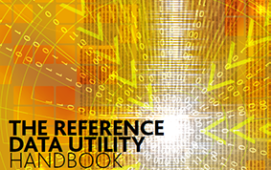
CJC, in collaboration with Broadhead Technologies, has officially launched Digital Rights for Data Management (DRDM), a blockchain-based platform designed to enhance market data contract management for financial institutions. The system aims to improve compliance, automate processes, and optimise revenue generation.
Built on a custom blockchain distributed ledger technology (DLT) foundation, DRDM enables real-time data tracking, intelligent automation, and full transparency. The platform supports exchanges, data providers, and asset managers in adapting to regulatory changes, including the upcoming 2026 MiFIR requirements.
“DRDM offers true digital contracts, not just digitised versions of traditional agreements. It’s not simply a Docusign-style solution; instead, it converts contracts into code or allows users to create them from scratch within the application,” explains Steve Moreton, Global Head of Product Management at CJC, in conversation with TradingTech Insight. “We provide all the tools necessary to build these contracts from the ground up, but equally important is the ability to convert existing agreements into code-based digital contracts. This is essential for ensuring seamless integration with various systems.”
He continues: “One of the key advantages of DRDM is its ability to interface with APIs across different platforms, including inventory management systems, contract management systems, and, crucially, provisioning systems such as LSEG Real-Time Data Access Control System (DACS). Currently, there is no direct link between provisioning systems and contracts—the process relies entirely on human interpretation. Someone must read the contract and manually ensure compliance, often making notes to track key details. DRDM eliminates this manual dependency, allowing for direct integration with permissioning systems, automating enforcement, and significantly improving efficiency.”
First introduced at WFIC2024, DRDM has already attracted significant industry interest, with financial firms recognising its potential to streamline operations and reduce audit risks. The platform replaces static documentation with dynamic, code-based contracts that update automatically and integrate seamlessly with internal systems. Market data usage reporting is also automated, ensuring compliance with licensing agreements and regulatory requirements while minimising audit risks.
While much of the initial focus has been on data publishers and exchanges, DRDM is designed as a universal solution that fits within a broader ecosystem, says Moreton. “It has been built to interface with a range of external systems, AML/KYC systems, and existing in-house solutions, ensuring flexibility and adaptability. Importantly, we have developed an integration layer that enables the system to function seamlessly from day one. This means that contract conversion and implementation work straight out of the box. The primary effort required early on involves onboarding existing contracts, setting up new agreements, and managing amendments—a crucial step in leveraging DRDM’s full capabilities.”
Moreton points out that CJC is a strong fit for this kind of work because the company often collaborates with software development houses that prefer to focus solely on development. “These companies typically don’t want to deal with the complexities of integrating with client systems, or even, in some cases, non-database solutions such as network drives, spreadsheets, or even undocumented processes stored in people’s heads.”
In addition to compliance-focused features, DRDM improves operational efficiency by automating key business processes such as client onboarding, KYC checks, and contract approvals, reducing the reliance on manual workflows, says Moreton. “Everything goes through a CJC ‘sanitary check’, ensuring that the onboarding and tooling processes are robust and comprehensive. This review guarantees that when a contract is converted into a digital contract, it is fully complete and capable of interfacing seamlessly with other systems.”
The platform also incorporates AI-driven analytics to identify revenue opportunities, predict client needs, and automate sales outreach, ultimately shortening sales cycles and improving customer engagement.
With increasing regulatory scrutiny—particularly from the European Securities and Markets Authority (ESMA) under MiFIR—financial institutions face mounting compliance and transparency demands. DRDM aims to simplify regulatory adherence and ensure fair pricing in market data usage, reducing the reliance on resource-intensive audits.
“We understand that, on day one, organisations may need time to map out their transition, but they will immediately benefit from easier contract management and streamlined distribution,” states Moreton. “Over time, they can gradually adopt more code-based contracts. DRDM also offers flexibility—some clients will want full access and control from the outset, while others may prefer a more gradual transition. The platform accommodates both approaches, ensuring a customisable experience that suits different needs.”
Subscribe to our newsletter




